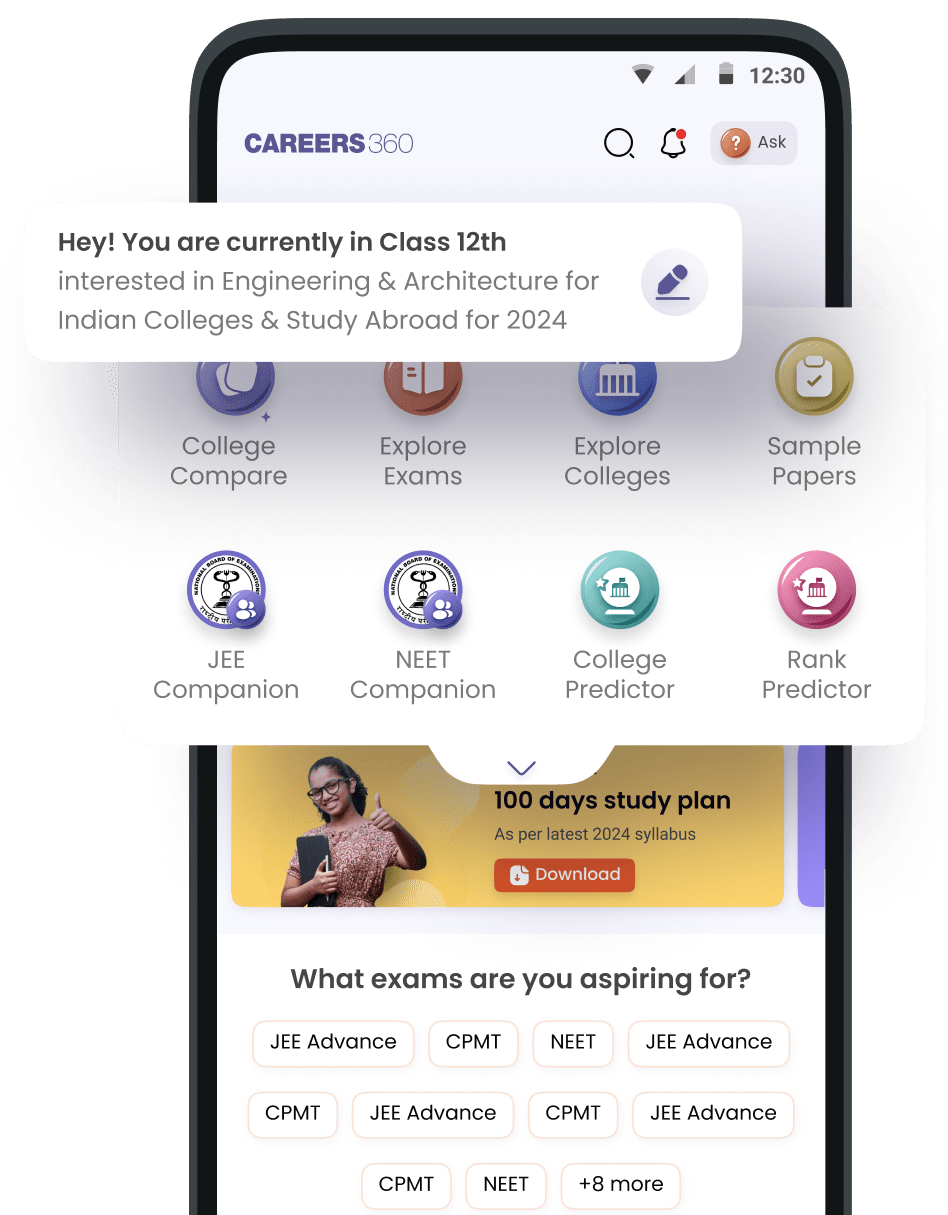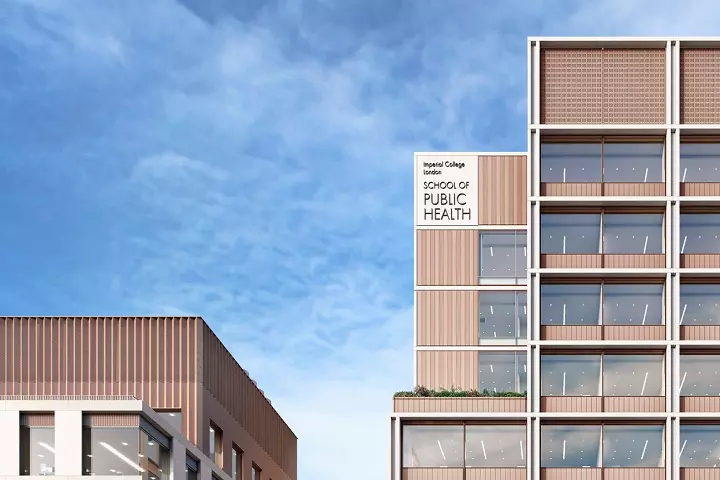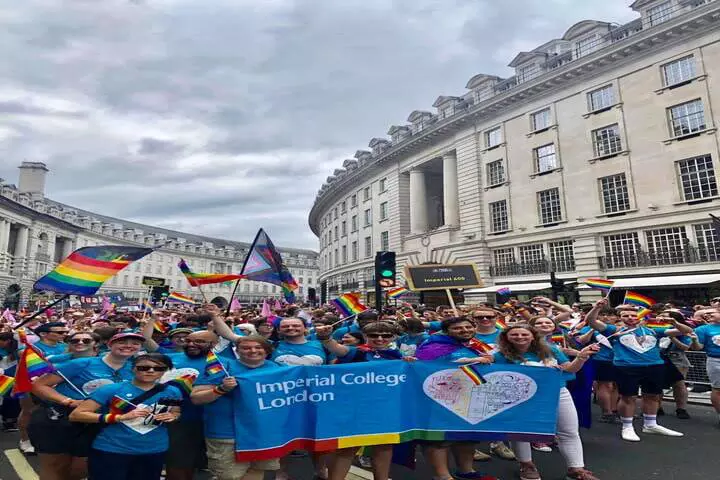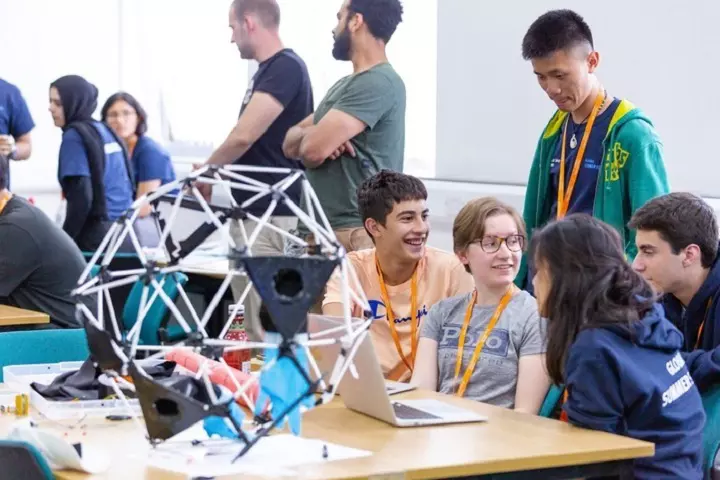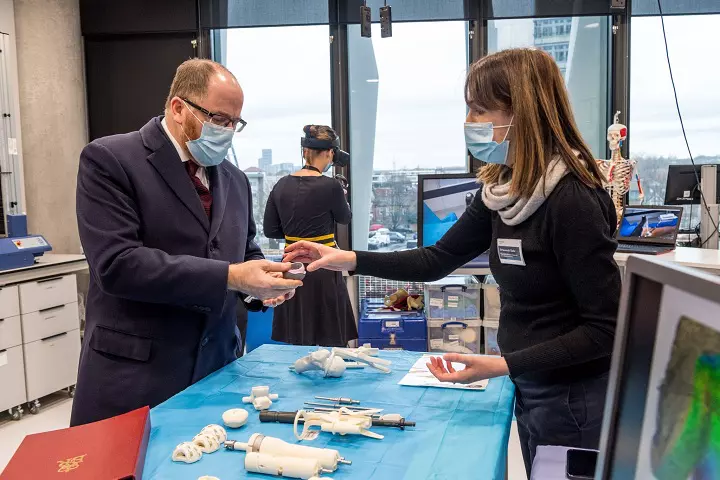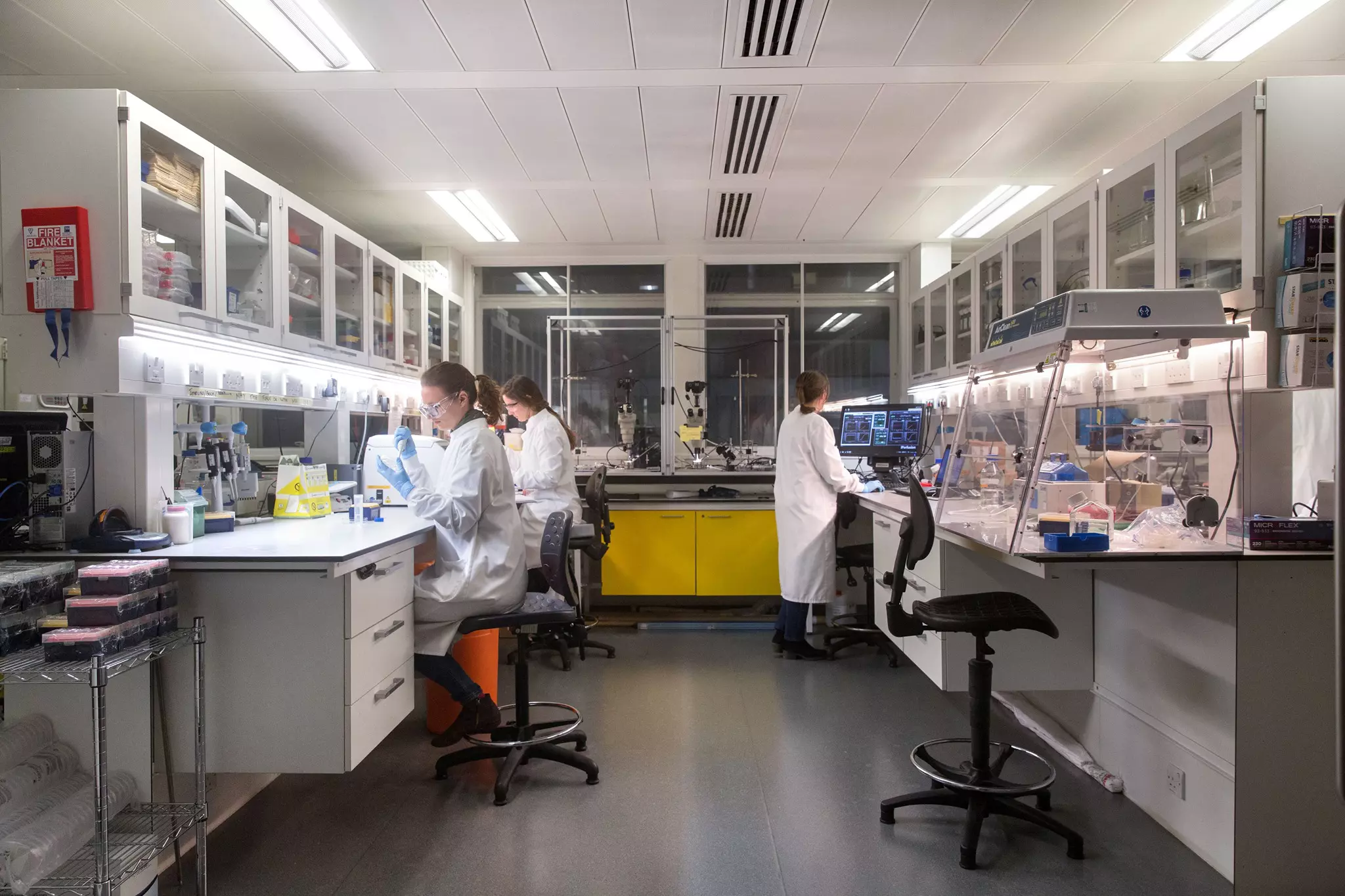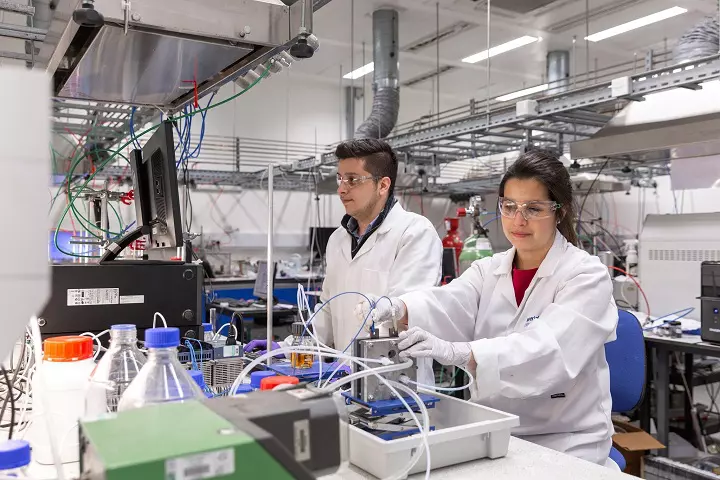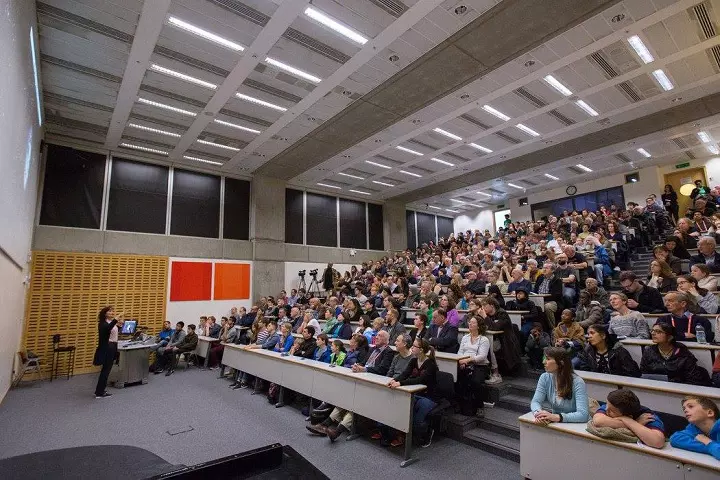About Imperial College
Imperial College London is an esteemed institute popular for its rich and diverse academic excellence and for its global impact. The University was established in 1907 in South Kensington, London. The university offers a diverse and distinguished approach to education. From science and engineering to business and the humanities, the institution provides a broad learning environment that encourages students to explore a wide range of subjects. The Imperial College of London is one of the top universities in the UK.
The Imperial College London aims to provide the best facilities to empower students for the fast-growing world with its high evolution in technology and research programmes. The university acceptance rate is approximately 12% to 18%.
For all undergraduate courses, the application should be submitted before January 31, 2024, except for the MBBS courses. The Imperial College London application deadline for 2023–2024 postgraduate courses is closed; the next application deadline for 2024–2025 is July 31, 2024. For non-native English speakers, Imperial College London accepts various English language tests, including TOEFL, IELTS, Duolingo English Test (DET), PTE, and more
If the applicant is applying for a full-time MBA course, then GMAT or GRE scores are a must as part of their application.Imperial College London offers more than 130 undergraduate courses and nearly 200 post-graduation courses, lasting between 3 and 6 years. The college covers courses in 16 academic departments covering science, technology, engineering, medicine, and business.
More than 100,000 students representing 200 countries come to study at Imperial College London each year. Imperial College London has several campuses in London and the South East, including Charing Cross Campus, Hammersmith Campus, Chelsea and Westminster Campus, St Mary's Campus, North West London hospitals, Royal Brompton, Silwood Park, South Kensington, and even in the north and south of White City. The main campus is in South Kensington.
Read More: Benefits of studying in UK
Imperial College Highlights
- Asian: 6430
- European union: 3300
- Others: 1140
- Middle East: 400
- Indian: 280
Imperial College Ranking and Stats
Imperial College London is a global top 10 university and has secured its ranking at 6th in the 2024 QS World University Rankings and ranked 4th among the best global universities in the United Kingdom. Furthermore, the Times Higher Education ranked Imperial College London in 8th place in the World University Ranking 2024.
Parametric Score and Ranking 2024
Ranking by year
Show adjacently ranked institutions
Imperial College Courses
Imperial College London offers more than 130 undergraduate courses. The college covers courses in 16 academic departments covering science, technology, engineering, medicine, and business. For postgraduates, the college has nearly 200 courses. The duration of the undergraduate courses is either three or four years.
The postgraduate course duration varies depending on the course selection and can be 1 to 2 years. If the research period of the course is extended, then the course may have a longer duration. Engineering and computer science are some of the top courses at Imperial College London, ranked as per the US News ranking by subject at 20 and 30, respectively.
Moreover, as per the QS ranking by the subject, data science secured its place at 16th, along with medicine ranked at 8th, and so on.
MBBS Courses at Imperial College:
The Imperial College provides top-tier instruction for the MBBS programme for both international and domestic students. Imperial College is home to one of the biggest medical educational institutions in Europe. It has collaborations with several NHS trusts, hospitals, and clinics, as well as medical campuses spread around north and west London.
The duration of the MBBS course at Imperial College is 6 years (72 months), and it is a full-time course. The course is delivered by the School of Medicine, which is located in Charing Cross, South Kensington.
Through this combined degree, students who succeed will receive a BSc and MBBS certification upon graduation. The option of including a PhD in their education may be provided to outstanding students.
Additionally, the institution offers external medical, dentistry, and veterinary students the opportunity to study at Imperial College London via the Intercalated BSc course of study.
Imperial College Affiliated Colleges

Imperial College Fees
| Courses | Duration | International Student | Local Student |
|---|---|---|---|
| M.Sc.(145 courses) | 1 year-2 years | ₹8.47 K - ₹48.17 L/yr | ₹13.43 L - ₹48.17 L/yr |
| B.Sc.(45 courses) | 3 years-5 years | ₹40.14 L - ₹44.12 L/yr | ₹9.80 L/yr |
| B.E /B.Tech(5 courses) | 3 years | ₹43.36 L/yr | ₹9.80 L/yr |
| MBA(1 courses) | 1 year | ₹71.50 L/yr | ₹71.50 L/yr |
| M.P.H.(1 courses) | 1 year | ₹45.81 L/yr | ₹15.87 L/yr |
Imperial College Cost Of Living
The tuition fee at Imperial College London is dependent on the course of choice, ranging from undergraduate to professional courses. Applicants can select the course of interest during the admissions process for full information on the tuition fees along with the eligibility requirements for the particular course. Moreover, there are some of the course fees listed below for reference:
Tuition fees for Undergraduate courses for International students
Course | Tuition Fee |
Computer Science | INR 43.6 L (£40,940) |
Mechanical Engineering | INR 43.6 L (£40,940) |
Data Science | INR 41.6 L (£39,100) to INR 43.6 L (£40,940) |
Business and Management | INR 41.6 L (£39,100) to INR 44.4 L (£41,650) |
Tuition fee for Postgraduate courses for International students
Course | Tuition Fee |
Computer Science | INR 43.6 L (£40,940) to INR £45,150) |
Mechanical Engineering | INR 43.1 L (£40,900) to INR 43.6 L (£40,940) |
Data Science | INR 36.2 L to INR 45.6 L (£34,350 to £43,250) |
Business and Management | INR 39 L to INR 43.2 L (£37,000 to £41,000) |
The requirement for a student visa in the UK to study at Imperial College London is that applicants must provide English language proficiency. English language tests are accepted with an appropriate score on the exam mentioned by the college for the specific course applied. Imperial College London will share the Confirmation for Acceptance of Studies (CAS) through email with a reference number for the application for a student visa in the UK.
Cost of Living
The cost of living at Imperial College London includes food, personal costs, bills, and insurance. In contrast, the cost related to the accommodation and travel of the college is almost similar to the cost of living in London. The estimated cost of living is mentioned below:
Estimate Cost of living at Imperial College London
Cost | Weekly | Yearly |
Accommodation College-run | INR 22.2 K (£210) | N/A |
Private sector | INR 24.2 K (£229) | INR 12.6 L (£11,933) |
Food | INR 7.5 K (£71) | INR 38.9 K (£3,692) |
Travel | INR 3.6 K (£34) | INR 1.5 L (£1,340) |
Personal and Leisure | INR 5.3 K (£50) | INR 2.8 L (£2,616) |
Total | INR 38.5 K (£365) | INR 20.7 L (£19,580) |
Imperial College Admission and Application
The Imperial College London admissions process for undergraduate and graduate students varies according to the course of choice. For international students, the college has additional eligibility criteria, such as an English language proficiency test or admission tests.
Candidates can apply for Imperial College London admissions in online mode. Applications for undergraduate courses are accepted through UCAS. Candidates applying for PG courses can visit the official website and directly apply through it.
A maximum of five courses are allowed to be applied at a single time; all five courses can be at a different college campus. For medicine, veterinary medicine, veterinary science, and dentistry, the applicant can only apply for a maximum of four courses; the fifth course should be in a different department.
If the applicant wants to apply for multiple courses at Imperial College London, each course will be counted as a separate choice on the application. For the multiple-choice course in the same department, the student first needs to contact the department administration for advice.
How to apply at Imperial College London?
Apply through UCAS. The UCAS code for Imperial College London is 150.
Select the course and department of choice.
Write the personal statement—nearly 500 words.
Check the application status on the UCAS hub.
Reply to the offers after the last decision came
Submit the offer conditions. If the applicant requires the CAS for the student visa for the UK, then they have to submit all the needed documents.
Imperial College London Application Deadline
The application should be submitted before January 31, 2024, for all the undergraduate courses, except the MBBS medicine course. Applications for our Medicine MBBS course should arrive at UCAS by this date to receive equal consideration. The deadline for the application of 2023–2024 postgraduate courses is closed; the next application deadline for 2024–2025 is July 31, 2024.
Imperial College London Application Fee
If the applicant is applying for a postgraduate course for (2023-2024) and (2024-2025) at Imperial, they need to pay an application fee. It is applied once for the application, not for the choice, of course. For all the applications for the MSc and MBA at Imperial College Business School, the student has to pay INR 10.6 K (£100) and INR 15.8 K (£150), respectively. Other than this, all the MSc students, excluding those at Imperial College Business School, need to pay INR 8.5K (£80).
Imperial College also offers a fee-waiver option for students. The students are not required to pay the application fees if they apply for the postgraduate courses from the following: MRes courses, PG certificates, PG diplomas, and postgraduate doctoral courses such as PhD and EngD at Imperial College London.
Fee waivers are only available if the Application Fee Waiver Form is filled out before the submission of the application.
Documents Required for Admission to Imperial College London.
For Indian students, the academic documents accepted are CISCE-ISC (Council for Indian School Certificate Examination-Indian School Certificate) Class XII or CBSE-AISSE (Central Board of Secondary Education-All India Senior School Examination) Class XII with an overall score of 90-92% in five subjects and 90-95% in relevant subjects.
2 LOR or reference: One must be an academic reference, and the second referee's appropriate professional referee can be academic.
The college accepts various English language tests for non-native English speakers, including TOEFL, IELTS, Duolingo English Test (DET), PTE, and more
Some of the Imperial College London departments require tests for the admissions process. The student is either required to take the departmental test or an external test as part of the selection process for the application.
The ATAS certificate must be linked to Imperial College for the study visa in the UK to study at Imperial.
Resume.
Imperial College Scholarship
Imperial College London offers a diverse range of scholarships for all Imperial College London students, including undergraduate, graduate, and professional-level courses. The scholarships are classified according to the course selection, nationality of the student, course duration, and many more. The scholarships are cash awards that cover tuition fees, living costs, or both. Here are some of the scholarships as per the level of courses for international students listed below:
Scholarships for undergraduate International students at Imperial College London (2024-2025)
Particular | Award | Application Deadline |
Anas M Tannir Scholarship | INR 14.9 L (£14,000) | April 19, 2024 |
Ceres Scholarship | INR 5.32 L (£5,000) | January 31, 2024 |
Departmental-Bursaries Material | INR 1.1 L (£1,000) | January 31, 2024, |
International Baccalaureate Excellence Scholarships | INR 5.32 L (£5,000) | April 5, 2024 |
Widening Participation Bursary, Department of Materials | INR 5.32 L (£5,000) | January 31, 2024 |
Rocky Fund Bursary | INR 2.7 L (£2,500) | May 24, 2024 |
Women's Scholarship (Marjorie McDermott) | INR 1.1 L (£1,000) | November 18, 2024 |
Scholarships for Postgraduate International students at Imperial College London (2024-2025)
Particular | Award | Application Deadline |
India Future Leaders Scholarship | INR 10.7 L (£10,000) | May 11, 2024 |
Basil Furneaux Memorial Fund | Up to (£17,000) INR 18 L | April 30, 2024 |
Department of Aeronautics MSc Scholarship | Full tuition fees in three MSc departments | March 31, 2024 |
All the scholarships at Imperial College London have different eligibility criteria and requirements depending on the course of choice, duration, academics, and more. Such as the Anas M. Tannir Scholarship, which is for students with disabilities, and some scholarships are only applicable to female students, like the Women’s Scholarship (Marjorie McDermott). For postgraduate students, the scholarships are even provided as per the department of choice.
Imperial College Eligibility
The Imperial College London has set its acceptance for English language proficiency at two levels: standard and higher. The college accepts various English language tests for non-native English speakers, including TOEFL, IELTS, Duolingo English Test (DET), PTE, and more. The applicants are required to submit a GMAT or GRE score if applying for the Imperial MBA. The list of exams and scores based on the level of test accepted by Imperial College London for overseas students is given below.
English Proficiency Test Required for International Students
Exam | Standard Level | Higher Level |
IELTS | 6.5 | 7 |
Duolingo | 115 | 125 |
LanguageCert International ESOL | ESOL B2 Test with High-grade Pass | ESOL C1 with grade pass in all components |
PTE | 62 | 69 |
TOFEL (iBT and iBT paper) | 92 (min. 20 in all elements) | 100 (min. 22 in all elements) |
Occupational English test | Grade C+/300 in all elements | Grade B/350 in all elements |
Indian 12th standard CBSE and CISCE | 70% | 70% |
IGCSE | Grade B or 6 | Grade B or 6 |
The scores required by Imperial College London for the International Baccalaureate test are according to the test type and the duration of the exam.
International Baccalaureate requirement at Imperial College London
For qualifications taken before 2013, | ||
Particular | Standard Level | Higher Level |
English A1 Syllabus | Grade 4 | Grade 4 |
English A2 Syllabus | Grade 5 | Grade 4 |
English B Syllabus | Grade 6 | Grade 5 |
For qualification taken after 2013 | ||
English A: Language and Literature | Grade 4 | Grade 4 |
English A: Literature | Grade 4 | Grade 4 |
English B | Grade 6 | Grade 5 |
The English language proficiency tests should have been taken within two years of the start date of the student's chosen course.
Some courses at Imperial College London require an ATAS certificate.
English should be the first language for IGCSE criteria.
If the applicant is applying for a full-time MBA course, then a GMAT or GRE score is a must as part of their application.
GRE and GMAT score requirements.
Exam
Minimum Scores
GMAT
600
GMAT Focus Edition
55%
GRE
In verbal 156
In quantitative 158
Imperial College Campus Facilities

Laboratories
Every department has its laboratories for different subjects. All the laboratories are well equipped with all the necessary equipment and facilities. Lab assistants are also present to help the students if needed.
Library
The Imperial College of London has 7 libraries, including one central library at South Kensington. The central library building is open 24 hours except on Friday from 11 PM to Saturday at 10 am. The other libraries at the campus are Charing Cross, Chelsea and Westminster, Hammersmith and White City, Royal Brompton, St Mary's, and Silwood Park. All the students can access books and other online study material, audiobooks, e-journals, e-books, etc.

Alumni Associations
The college has a good networking alumni association for all students.

Sports
The Imperial College of London is home to 90+ sports such as badminton, baseball, football, cricket, golf, etc. The sports clubs compete in a number of sports leagues like British Universities and Colleges Sport (BUCS), and London Universities Sports Leagues (LUSL) among others. The Imperial College of London also grants scholarship to students who are competing at national and international levels.
Gym
Imperial College, London provides gymnasium facilities for the students and faculty throughout the day. The gym is fully air-conditioned and well equipped with all the necessary equipment needed for conducting all exercises and workouts. Trainers are also there to guide and help students during their workout sessions.
Swimming Pool
The college has a swimming pool facility for all students.

Transport Facility
The transportation facility is very smooth and there are a vast number of commute options available. The main campus of Imperial College is located in South Kensington and can be easily reached by tube, bus and cycle routes. The other campuses can also be reached through some common mode of transportation. Students can get an Oyster card for easy commuting throughout the city. Students can check the transport on London website for routes and guides.
I.T Infrastructure
The college has an excellent IT infrastructure for all students and staff.
Cafeteria
There are over 29 food outlets, which include cafés, restaurants and convenience stores. Chemistry cafe, Library Cafe, MRC Cafe, Neo Pizza & Pasta, Plantworks, and Queen's Tower Rooms are some of the popular restaurants and cafes in the Imperial College of London premises. These food outlets serve breakfast, lunch and dinner and are usually operated from Monday to Friday.
Imperial College International Office Details
Imperial College London is one of the most prestigious universities across the globe for its academic excellence and research innovations and one of the top universities to study in the UK. Approximately 100,000 students from 200 countries come to study each year at Imperial College London. There are now more than 800 Indian students based at the campus in London
Is it hard to get into Imperial College London as an international student?
The application process is generally competitive at Imperial College London, with an average ratio of 7:1; for every place, the college received seven applications. According to the acceptance rate of Imperial College London for international students, approximately 6% of students can enrol. The acceptance rate may vary depending on the course applied.
Address: South Kensington Campus
London SW7 2AZ, UK
Contact: 020 7594 8040
Fax: 020 7594 8002
Email: international@imperial.ac.uk
Imperial College Gallery
Gallery

